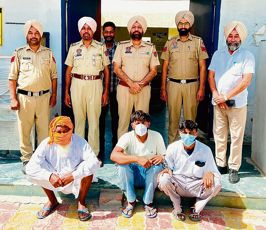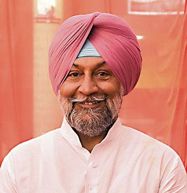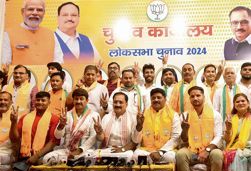Yogi Adityanath. PTI
Vibha Sharma
Chandigarh, November 20
The ban on the sale of ‘halal’-certified products by Chief Minister Yogi Adityanath in Uttar Pradesh has led to diverse reactions—demand for similar prohibition in other states by supporters and criticism by detractors. The UP government also prohibited manufacturing, storage, distribution of ‘halal’-certified products in the state after the state police registered cases against certain companies and organisations for allegedly issuing “forged halal certificates” to boost sales.
The FIR alleged that “business interest of other communities was being hurt” due to the “illegal” certification, according to reports. Opposition Congress slammed Adityanath, accusing him of creating “a divide among communities to divert attention from real issues”. “The Yogi government is preoccupied with dividing people to create differences within them,” state Congress chief Ajay Rai was quoted as saying.
What is ‘halal’
‘Halal’ basically means ‘jayaz’ or “permissible” in Arabic in contrast to ‘haram’ which means “forbidden” and are the products permitted by Islamic law. Normally, ‘halal’ refers to non-vegetarian food that is processed in a particular way or does not contain alcohol and pork.
However, according to members of the community, ‘halal’ means “permissible” and goes way beyond dietary or meat restrictions. “It also covers aspects like quality, hygiene and safety aspects of the food consumed and includes dressing/clothing, behaviour, occupation, basically a ‘halal’ way of life according to Sharia law, they say.
However, according to UP officials, “illegal certification” is being used to sell other products, including non-food items like soap, oil, medicines, cosmetics and also brooms.
“Somehow it has gone beyond the basic concept of ‘halal’ and ‘jhatka’ meat and things that do not even require such certification. The certification is required in the Middle East and many companies, including those belonging to non-Muslims, acquire it to do business in Islamic countries, which is okay.
“The problem begins when there is propaganda favouring such a certification in India. Certification is a multi-crore business and the fact is that such a certificate is not even required in India. There is propaganda to discourage the use of products without the certificate to harm business interests of other communities,” officials say.
There is no official regulator for the certification of ‘halal’ products in India and private companies issue these certificates.
The UP government alleges “malicious attempts” to discourage the use of products lacking a ‘halal' certificate not only to seek “unfair financial benefits” but also to form part of a “pre-planned strategy to sow class hatred, create divisions in society, and weaken the country” by “anti-national elements”.
The complainant also alleged that companies were issuing "forged certificates" and individuals were “amassing disproportionate profits and channeling funds towards supporting terrorist organisations and anti-national endeavours”.
Difference between ‘halal’ and ‘jhatka’
‘Halal’ involves slaughtering the animal slowly, along with recitation of lines from the holy book while following the set guidelines. Stunning cannot be used and animals must be alive and healthy at the time of slaughter.
‘Jhatka’ refers to the swift chopping of the head in a single blow so that the animal dies instantly without much pain. There are arguments and counters on nutritional values of both.
Around April 2022, members of a rightwing group launched a campaign in Karnataka to boycott ‘halal’ meat.
They also alleged that money from ‘halal’ certification was being used in “anti-national activities”.
Some BJP leaders also said that Hindus were well within their rights to demand non-halal/‘jhatka’ meat like Muslims demand ‘halal’.
BJP general secretary CT Ravi went on record calling the ‘halal’ meat a kind of “economic jehad”. “Halal is an economic jehad. It means that it is used like a jehad so that Muslims should not do business with others. When they think that only ‘halal’ meat should be used, what is wrong in saying that it should not be used?” Ravi said.
Calling ‘halal’ meat “somebody’s leftover for Hindus”, he said: “Halal has been designed in a planned way so that the products should be purchased only from Muslims and not from others. When Muslims refuse to buy meat from Hindus, why should you insist on Hindus buying from them,” Ravi said.
“Such trade practices are not one-way traffic but two-way. If Muslims agree to eat non-‘halal’, then Hindus will also use halal,” he argued.
UP government action
The FIR has invoked charges like criminal conspiracy, promoting enmity between groups, extortion, uttering words, etc, with deliberate intent to wound religious feelings, cheating, forgery of valuable security, forgery for purpose of cheating and using as genuine a forged document or electronic record, according to reports.
A day after the FIR was lodged, the state Food Security and Drug Administration (FSDA) department issued the order banning the manufacture, sale, storage and distribution of halal-certified products with immediate effect in the state from the view of “public health.”
Food products made for export were, however, excluded from the list.
‘Halal’ certification
Cases have been registered against Halal India Private Limited Chennai, Jamiat Ulama-i-Hind Halal Trust Delhi, Halal Council of India Mumbai, Jamiat Ulama Maharashtra and others for allegedly exploiting religious sentiments to boost sales by providing halal certificates to customers of a specific religion under Sections 120B (criminal conspiracy), 153A (promoting enmity between different groups), 298 (uttering words, etc with deliberate intent to wound the religious feelings), 384 (extortion), 420 (cheating and dishonestly inducing delivery of property), 467 (forgery of valuable security, will, etc), 468 (forgery for purpose of cheating), 471 (using as genuine a forged document or electronic record) and 505 (statements conducing to public mischief) of the Indian Penal Code, as per agency reports.
Meanwhile, the companies against whom the case was filed have termed the allegations baseless and are said to be following legal recourse to "counter misinformation". Their officials say that the ban on ‘halal’ certified products in UP would impact manufacturers and sellers across the communities as the certification also benefits businesses of non-Muslim companies.
Join Whatsapp Channel of The Tribune for latest updates.




























